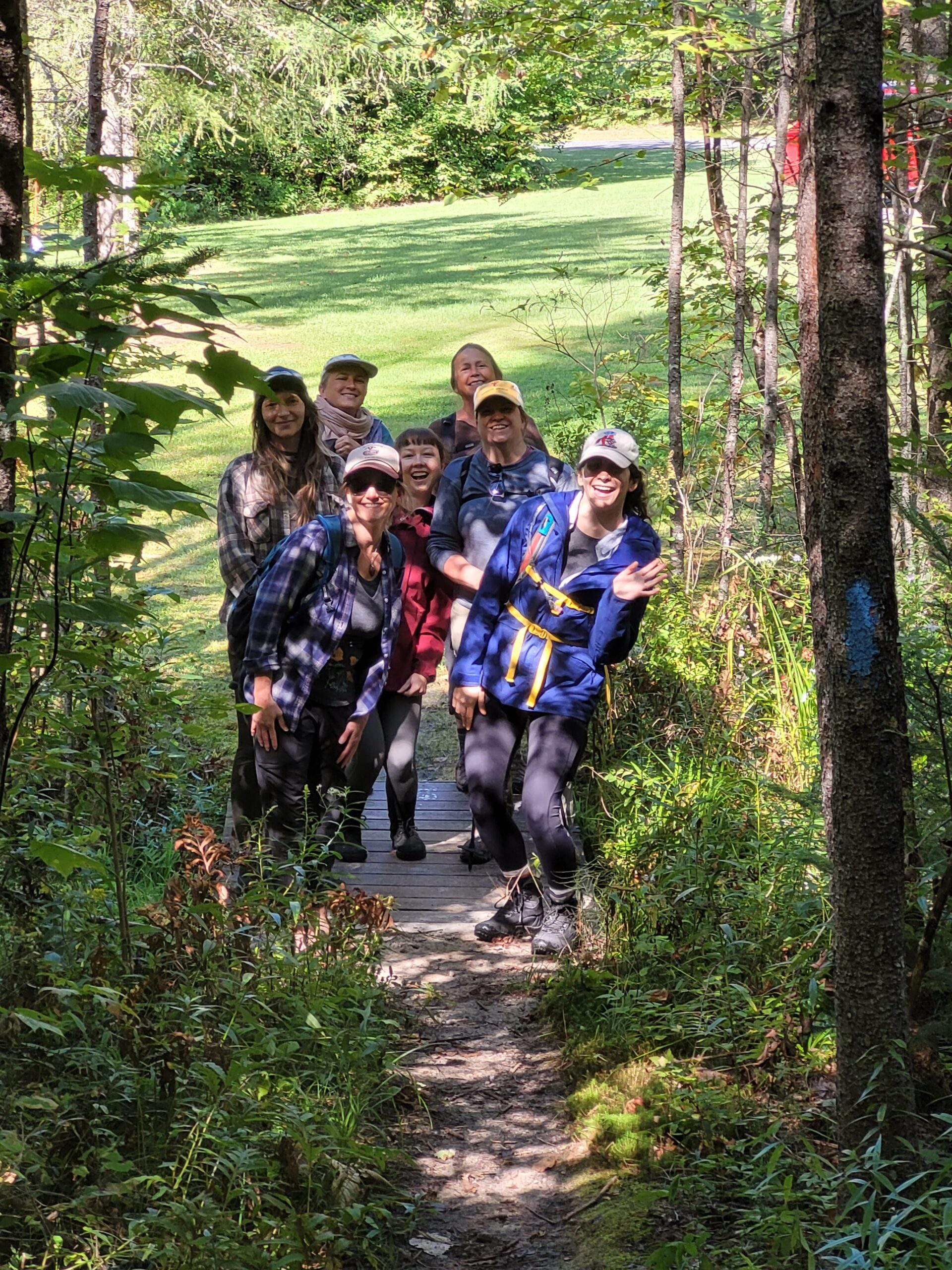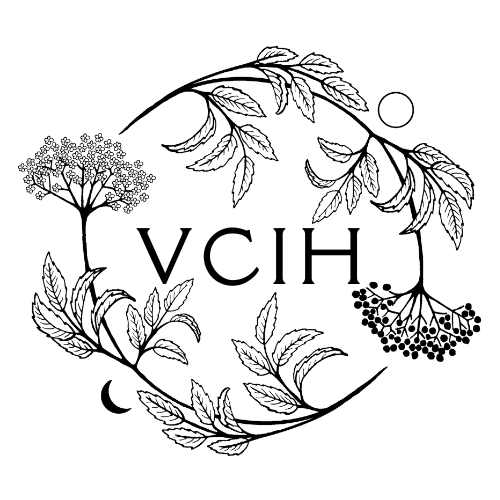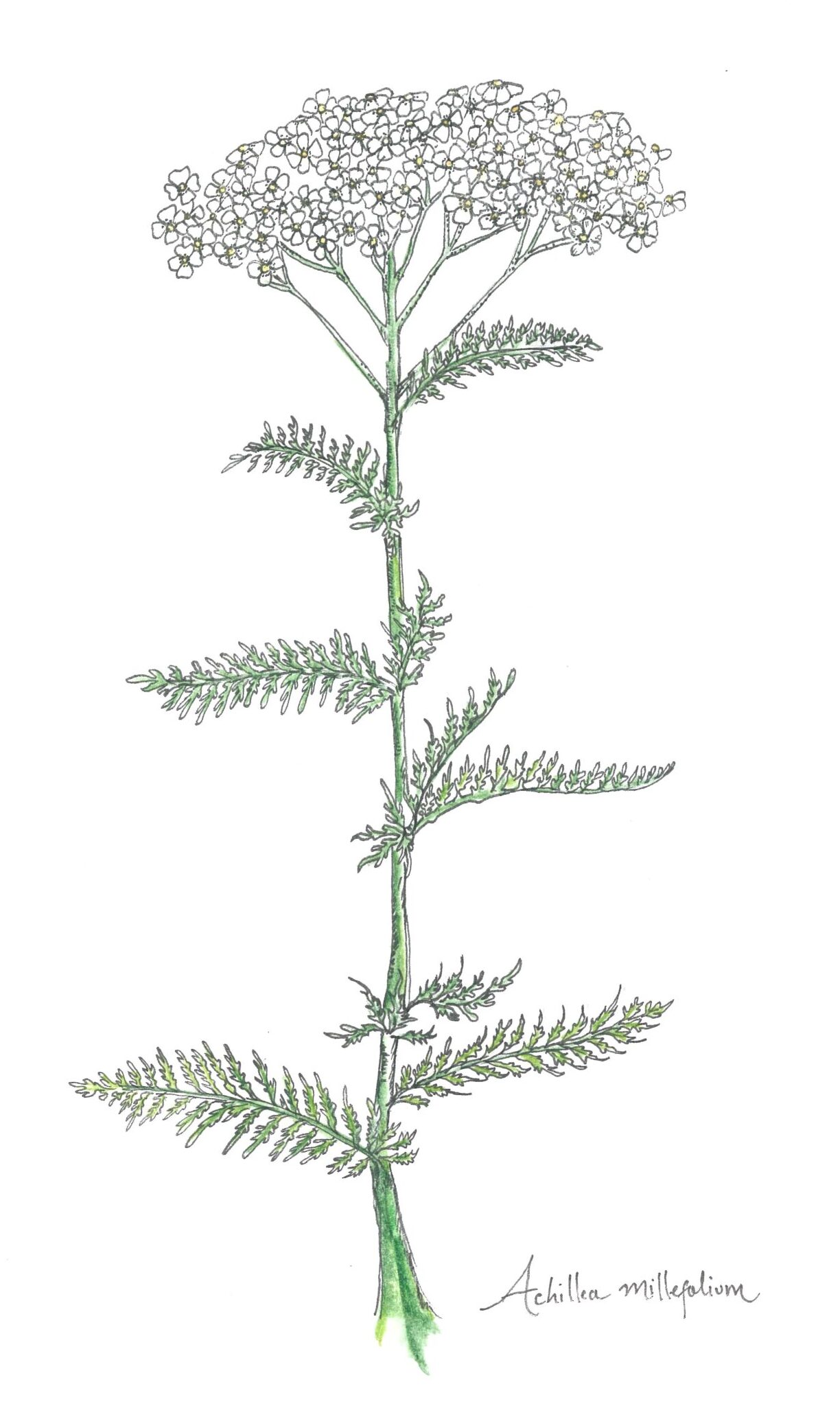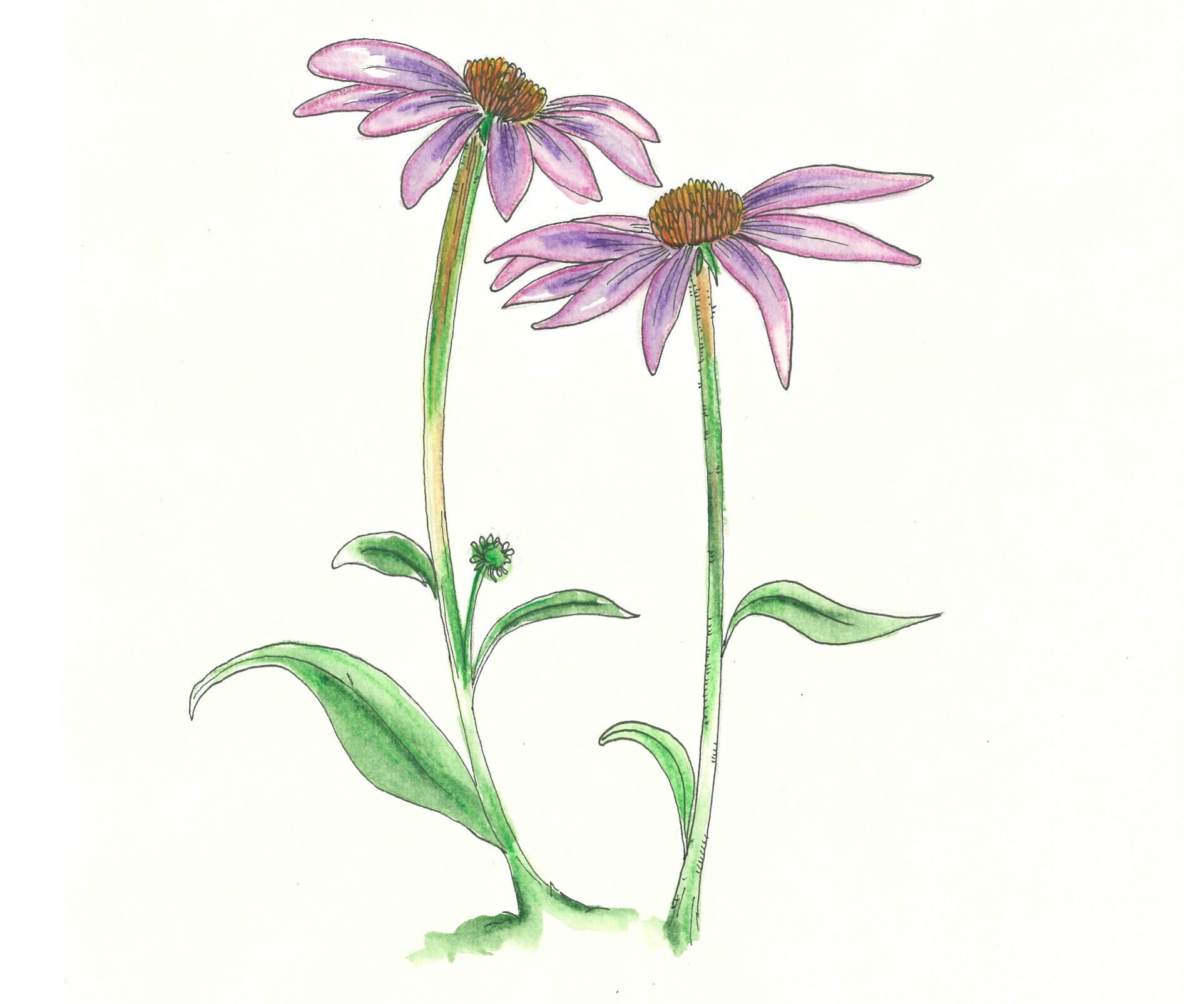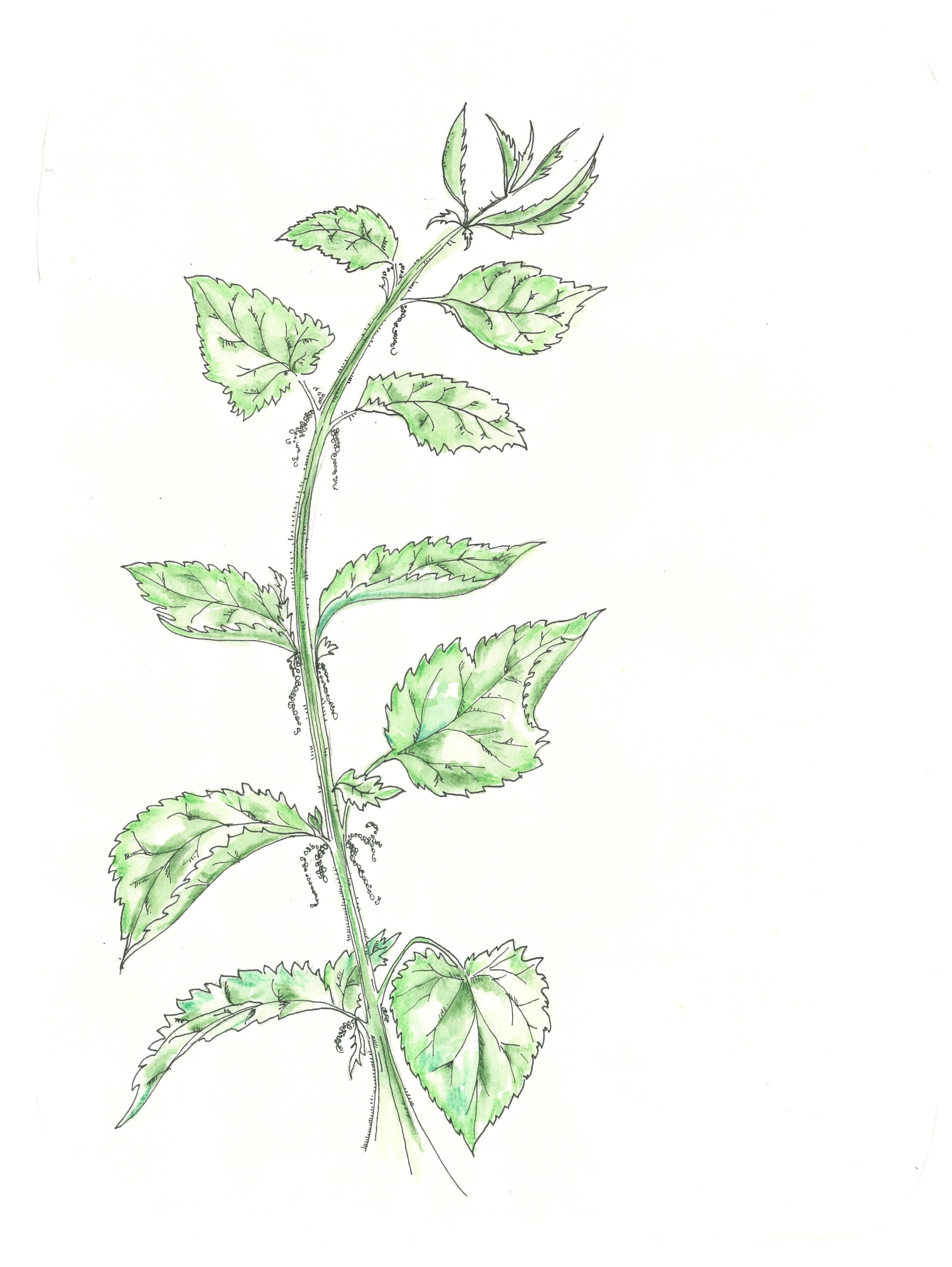“The quality time that I spent with great people during my community hours really gave me a lot. It gave me a great sense of use, value and belonging. This is priceless. This experience reminds me of the importance of community outreach and the gifts that volunteering has to give. I love all the varied places I was able to go and people I got to know better. I learned lots and was deeply appreciated, better than paper money in my opinion!”
In the spirit of grassroots engagement and service, the foundation upon which VCIH was built, we encourage our students to extend their passion and purpose beyond the classroom. In order to deepen reciprocity with and responsibility for the plant and human communities we each participate in and depend on, we require our students to undertake volunteer projects which benefit these communities at a local, national, or even global scale.
By expanding our organizational commitment to service beyond our clinical and educational work, we hope to focus and maximize the impact of the considerable skills and enthusiasm present in the VCIH learning community, while acknowledging and celebrating the radical, change-making work that many students already do.
400+ Hours Given in 2016
In 2016, students in the Family and Clinical Herbalist programs at VCIH contributed over 400 hours of their time to community engagement and solidarity projects. Project hours included:
- Over 80 hours dedicated to the VCIH clinic, classroom, apothecary and gardens. Activities included planting, weeding and watering medicinal plants; processing plants to be used in the apothecary; completing a hydrosol distillation project; and reviewing the VCIH student journal.
- Over 73 hours of Vermont-based apothecary work at RAILYARD in Burlington, Mandala Botanicals in Orange, and Sweetgrass Herbals in Lincoln.
- 20 hours cataloging herbs at the Pringle Herbarium in Burlington
- Over 30 hours of farm and garden work at Foster Hill Farm in Calais, a community garden in White River Junction, and a wildlife refuge in Stowe.
- 15 hours of herbal education at Camp Grounded and in the community at large, including herb walks, blind herb tastings, and first aid remedies.
- Over 11 hours of medicine making that was sent to Standing Rock, the Orlando Grief Project, and the Stone Cabin Collective.
Time was also dedicated to the following projects and organizations: Justicia Migrante, Orlando Grief Care Project, Planting Hope, Source to the Sea Connecticut River Watershed Cleanup, the Kestrel Land Trust, Vermont Refugee Resettlement Program, Girls Rock Vermont, Stone Cabin Clinic, and the Plainfield Fast-Squad.
Read on for student reflections on their experiences:
Land Surveying Volunteer for Kestrel Land Trust
“I get to go out and be on properties that I wouldn’t ordinarily get the opportunity to visit, and have met some amazing plants in these places—such as lady’s slippers, jack-in-the-pulpit, trillium, and a score of others. Doing my part to make sure that these plots of land are preserved, kept clean, and respected helps me to honor all of these plant friends.”
RAILYARD Apothecary
“Seeing the day-to-day minutia of how any apothecary works (especially one that so many of us had been eagerly waiting to see open) gave me a deeper understanding of the gravity of actually running an apothecary. There’s is an undeniable romance to the idea of just “having an apothecary”, and while I hope those romantic notions never die, there is also a hard truth to seeing and knowing the incredible amount of effort and care and people it takes to run one efficiently.”
Foster Hill Farm
“…just talking to the people on the farm and learning about the ups and downs of dedicating your life, or even part of it, to something that big, was invaluable (and inspiring).”
Volunteer EMT for Plainfield Fast-Squad
“One of my friends from the Fast-squad recently texted me that he had a chest cold that he couldn’t kick, and was resorting to texting me to see if I had any ‘gross witchy concoctions of bark and dirt that could help’ and this coming from a guy who claims that vitamins make him puke. So I gave him some elderberry syrup and an oxymel specifically for helping clear the lungs. When I saw him the next week he said ‘I couldn’t believe all my witchy hippy B.S. really worked!’”
Sheep herder/supporter in Big Mountain
“Even though I wasn’t participating in any type of clinical work while I was out there, I think it’s so crucial for us as herbalists to understand the different forms of healing and fighting that need to happen if we really want to throw around the word “holistic”. Social healing and political resistance work are as much part of addressing root causes as understanding energetics and body systems. Maybe sometimes this social and political work will directly coincide with clinical work, but other times it might just look like showing up and putting our bodies on the line in solidarity. It might look like hauling fire wood or doing dishes. I feel like I’m maybe learning a bit more about how to navigate these dynamics, but mostly I find myself asking a lot more questions about what it means to be doing “healing” work as a person whose presence on this continent is built and contingent upon so much ongoing violence. I’m also trying to ask those questions of other white settler folks in my communities, hoping that we can engage with a type of herbalism that really heals instead of just continuing patterns of extraction and exploitation that come so naturally to us in the context of colonialism and capitalism and white supremacy.”
Instrument Instructor/Counselor for Girls Rock Vermont
“Our whole lives we women are taught not to take up space, to have opinions, to be loud or strong. If you aren’t socialized to put yourself first, it is going to be that much harder to advocate for your body and your health. I believe, at least in my life, that being read as female and living in a culture that reacts to me as female and teaches me according to that idea, that this has had a direct and negative impact on my health and my ability to be healthy. The act of a band of girls playing rock music amplified on stage is a direct protest to the de-prioritization of women. […] While the camp is a small effort toward healing the huge divide between genders in this society, it had a significant impact on my mindset.”
Volunteer for Stone Cabin Clinic at Black Mesa
“The clinic is going on its 8th(?) year as a bi-annual all-donation/all-volunteer collective that is invited by Diné folks to come out to the Black Mesa and provide free herbal consultations/herbs, acupuncture, body work, and foot care treatments to members of the Diné community. This clinic is close to my heart and aligns with my politics, both in terms of being a part of the larger project of dismantling a system built on colonization and oppression in many forms, as well as providing free health care treatments in a community where health care equity doesn’t currently (or historically, post-colonization) exist.”
Coordinator for the Mosaic of Flavor Cooking Series, a partnership between the Vermont Refugee Resettlement Program and City Market
“We spend an afternoon shopping for the ingredients – I have been shown where to find cassava leaves, palm oil and Ethiopian berbere in Burlington – and then we prepare the dishes we will make in the class. This time spent with the cook and her family learning the traditional ways of making favorite foods has probably been one of the most meaningful parts of the work for me. During the course of the evening, while cooking together, I hear about the cook’s personal story, the conditions in her country of origin and the reasons her family left. I learn about children, spouses and other family members still in refugee camps awaiting paperwork that will allow them to come to the US, the difficulty of obtaining refugee status, the challenges encountered since arriving in Burlington, and the difficulty of finding work in a new country and culture. It has been wonderful to get to know these cooks and their families and establish friendships that continue beyond the classes we offer.”
